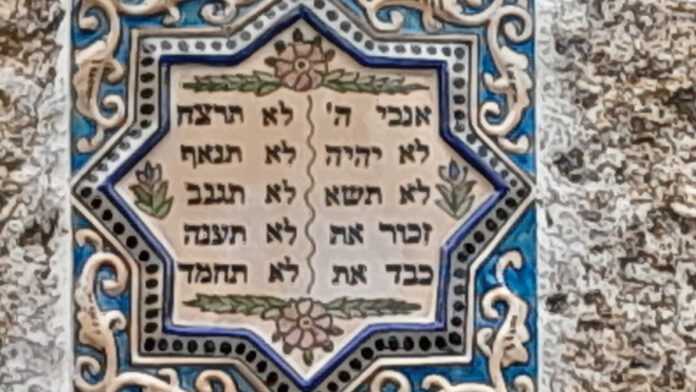by Bonny and Debbie Feldman
As South African Jews of Ashkenazi descent, we have long realised that our education and life experience has not included much about our Sephardi brethren — their origins, their history and their trials and tribulations.
During lockdown, we discovered a world we knew little about, through various webinars that focused on elements of Sephardi history — and found it fascinating.
And so, on a recent trip to Portugal, our interest in finding out more about the Portuguese Jewish community was sparked. It’s a quite fascinating — but tragic — piece of history. With our interest in Jewish history, it would have been odd to have visited the country and not to include a stopover in the town of Belmonte, a rural town which offers an insight into the way of life of people who were, outwardly, devout Catholics but who practised other rituals — remnants of the Jewish religion of their pre-Inquisition forebears.
While Belmonte is not a town of major interest for tourists, it has been attracting visitors with an interest in Jewish affairs from around the world. The reason? It is one of very few places in the world where one can meet people who live as Jews but who know that they are descendants of crypto-Jews: people who were forced to convert to Christianity during the 15th and 16th centuries because of the demands of the Inquisition, but who managed to continue practising elements of Judaism in secret over the following 400 to 500 years.
The secret practice would have continued today if not for a Polish Jewish engineer called Samuel Schwarz, who came to the area in about 1917 for work purposes. He met people who, once they felt they could trust him, shared some of their activities and the vocabulary they used in their secret religious practices — baking special bread for Easter (in fact, it was for Passover but the two festivals occur at roughly the same time); finishing off prayers with the word Adonai; and saying the Christian prayers without mentioning the name of Jesus at the end. Realising their connection to Judaism, Schwarz spent many years researching their lives and shared the story with the wider Jewish world.
Essentially, he had identified a living remnant of the post-Inquisition world, and his discovery subsequently led to the opening up of life for the Belmonte Jews, who today practise their Jewish religion freely and securely. After centuries of being fearful — so frightened of being found out that the secrecy continued for hundreds of years — they no longer have to fear being denounced as Jews to the authorities.
Today, the Jews of Belmonte proudly practise their religion, wearing kippot in public, and adorning the outside of their homes with attractive tiles sporting Hebrew wording or symbols of Judaism. Their homes in the ancient Jewish Quarter of Old Town Belmonte proudly show off large, colourful mezuzot — something not even their grandparents could have risked doing. There is a hotel, the Sinai Hotel run by a local Jewish family, that attracts Jewish travellers — again an indication of the freedom that the community now enjoys.
In more recent years, a synagogue was built in the Jewish Quarter, and we attended a Shabbat service. The service was led by a teenage boy from the community, who told us after the service that he and his brother are the only two school-age children among the Jewish community — in addition to five babies born recently! We also identified a few Jewish graves in the nearby cemetery, which appears at first glance to be a Catholic cemetery.
The town also offers a very good Jewish museum — well worth a visit. There is also a Jewish museum in the town of Castelo de Vide, and another small museum in Tomar, which also offers visitors entry into a synagogue that dates from the early 15th century. (Schwarz also played a vital part in preserving the synagogue, having bought the building in 1923 and then donating it to the Portuguese government on condition that it was used as a museum.)
For anyone thinking of visiting Portugal, make sure that you add on a few days, to take in the fascinating history of the Jews. Make sure you do plenty of research in advance so that you can get the most from your visit.
Disclaimer: The information in this article is based on what we have read, rather than our own independent research. We are therefore unable to guarantee absolute accuracy. Bonny and Debbie Feldman
• Published in the December 2022/January 2023 Digital Edition – Click here to read it.
• To advertise in the Cape Jewish Chronicle and on this website – kindly contact Lynette Roodt on 021 464 6736 or email advertising@ctjc.co.za. For more information and advertising rate card click here.
• Sign up for our newsletter and never miss another issue.
• Please support the Cape Jewish Chronicle with a voluntary Subscription for 2022. For payment info click here.
• Visit our Portal to the Jewish Community to see a list of all the Jewish organisations in Cape Town with links to their websites.
Follow the Cape Jewish Chronicle: Facebook | Instagram | Twitter | LinkedIn












[…] issue. Upon my return, I was pleasantly surprised to see the piece by Bonny and Debbie Feldman. (Into the heart of crypto-Judaism in Portugal, CJC December 22/January 23) I immediately contacted my friends, and highly esteemed colleagues, whom I have cc’d on this […]